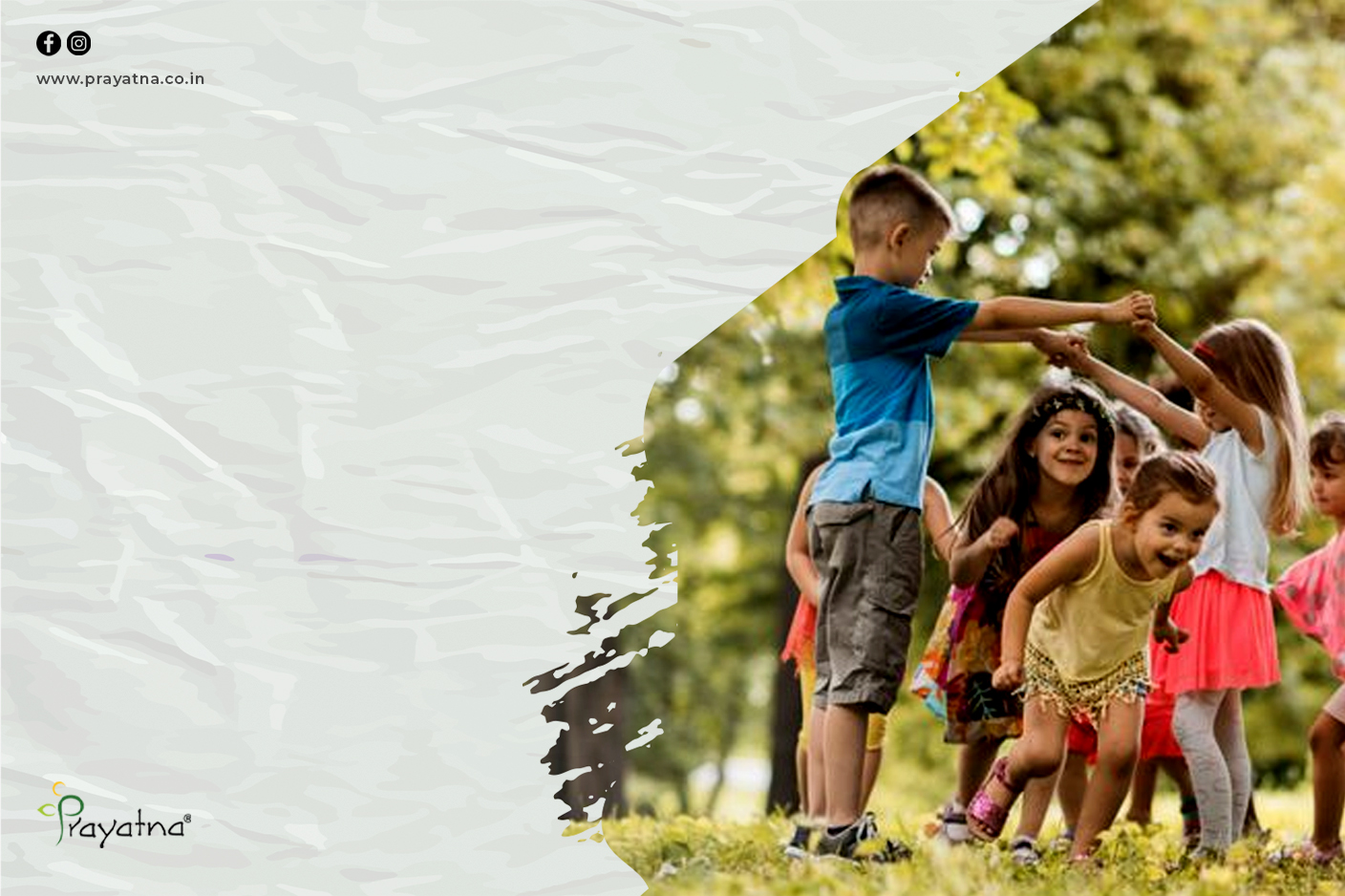
Written By
Anjana M Nair
Occupational Therapist
BOT
Children’s outdoor time has drastically decreased in today’s tech-driven, fast-paced world. There are fewer opportunities for social connection and physical exercise when screen usage conflicts with outside activities. However, outdoor play is essential for a child’s development, encompassing physical, mental, and emotional well-being.
Challenges Faced by Children Without Outdoor Play
- Limited Social Interaction: Reduced outdoor play can limit children’s opportunities for face-to-face socialization, affecting social skill development.
- Decreased Physical Fitness: Lack of outdoor activity often leads to lower levels of physical exercise, contributing to issues like obesity and weaker motor skills.
- Mental Health Impacts: Insufficient outdoor play can increase stress and anxiety, as children miss out on nature’s calming effects and the mental relaxation it provides.
- Reduced Sensory Development: Without outdoor play, children may have fewer chances to experience sensory-rich environments, potentially affecting sensory processing and awareness.
- Weakened Resilience and Risk Assessment: Limited exposure to the challenges of outdoor play can hinder children’s ability to navigate risk and build resilience, impacting decision-making skills.
Why Outdoor Play Matters
Outdoor play is not just a way for children to burn off energy; it’s a crucial component of their growth and development. Here’s why:
- Physical Health: Playing outside promotes physical activity, which is essential for keeping a healthy weight and avoiding childhood obesity. Additionally, it promotes cardiovascular health, muscle strength, and coordination.
• Cognitive Development: Children may explore and engage with the world through hands-on play outside, which can enhance their creativity and problem-solving abilities.
• Emotional Well-Being: Children’s mood and general mental health can be enhanced by outdoor settings, which can lessen anxiety and stress.
• Social Skills: Playing outside frequently allows kids to interact with their classmates, which fosters the growth of their ability to cooperate, communicate, and resolve conflicts.
• Immunity Boost: A child’s immune system can be strengthened by exposure to natural components like sunlight, which lowers their risk of falling sick. - Sleep: Outdoor play enhances sleep patterns in children by promoting physical activity, which helps regulate their natural sleep-wake cycles. Exposure to natural light during outdoor play also supports the production of melatonin, the hormone that controls sleep, leading to improved sleep quality and duration.
- Sensory experiences: Outdoor play offers children valuable sensory experiences, allowing them to engage with diverse textures, sounds, sights, and smells in their natural surroundings. This sensory stimulation supports cognitive development, enhances sensory processing skills, and fosters a deeper connection with their environment.
Benefits Backed by Statistics
According to the World Health Organization (WHO), children aged 5-17 should engage in at least 60 minutes of moderate to vigorous physical activity daily, yet many fall short of this target.
A study by the American Academy of Paediatrics (2006) highlights that children who engage in outdoor play are 35% less likely to develop childhood obesity.
A report by Stanford University (2015) shows that regular exposure to nature can improve mental health and cognitive function, with a 50% reduction in symptoms of anxiety and depression among children who spend time outdoors.
Including Outdoor Play in Everyday Activities
- Daily Walks: Begin with quick strolls around the neighbourhood, which can progressively build to longer outdoor pursuits.
- Nature-based Activities: Involve kids in outdoor activities such as gardening, hiking, and bird watching. These exercises can be informative as well as physically demanding.
3. Outdoor Games: Traditional games that promote mobility and social interaction include soccer, tag, and hide-and-seek.
4. Playground Visits: A trip to the neighbourhood playground can offer an enjoyable and active diversion from inside environments.
Conclusion
The benefits of outdoor play extend far beyond childhood. Active children are more likely to develop into healthy adults with a balanced lifestyle. They grow up with stronger physical, cognitive, and social abilities. Ensuring your child has adequate time to explore the outdoors is one of the most effective ways to promote their holistic development.
In today’s screen-centric society, it might seem difficult, but promoting regular outdoor activity will benefit your child’s physical and emotional health. Every minute spent outside, whether it’s playing in the backyard, going to the park, or hiking a path, adds up to a happier, healthier childhood.

